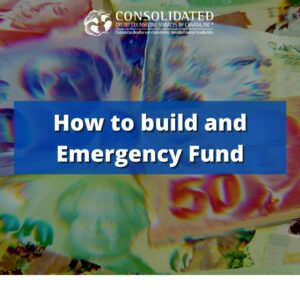We’ve been hearing a lot about American banks on the news. The collapse of Silicon Valley Bank (SVB), the near-deaths of Signature Bank and First Republic Bank. Luckily, experts say that banking in Canada is much safer, and our financial institutions are less likely to fail. Let’s look at why it’s safer.
How do banks fail?
The most common reason banks fail is the value of their assets falls below the market value of their liabilities. A bank’s liabilities are its obligations to creditors and depositors.
SVB has been the biggest bank collapse in the U.S. since the global financial crisis. The large proportions of uninsured deposits made it vulnerable. So did the high amount invested in hold-to-maturity securities.
To put this in perspective, no Canadian bank failed during the Great Depression, World War II, or the Great Recession. And in those rare times they do fail? You’re protected.
The Canada Deposit Insurance Corporation, or CDIC, guarantees you’ll get your money back if a bank fails. It covers up to $100,000 per account. You don’t even have to do anything. No paperwork. No phone calls. The CDIC automatically returns any money you had in the failed bank – up to $100,00, which is more than most of us have in any single bank account.
In the United States, their CDIC is called the FDIC. It guaranteed the deposits for account holders in the Signature and Silicon Valley banks.
I’ve been asked by worried people if they should do something, since so many banks are failing in the span of just a few days. My advice has been: Do nothing. Unless you have over $100,000 in a single bank account, don’t let this coincidence distract you from saving and budgeting.
Canadians need to focus on their own money, so THEY don’t fail. Consolidated Credit can help. We offer a free debt analysis when you call one of our trained experts. From there, we’ll give you all the options so your finances will never fail.
What protections are in place to prevent bank failure in Canada?
It is unlikely that a Canadian bank would go bankrupt. They are carefully controlled to guarantee they have enough funds and that their financial records are sound. In the event it ever did happen, Canada has set up protections:
The Canada Deposit Insurance Corporation (CDIC)
- The CDIC is a Government of Canada agency that insures deposits in many banks. The National Bank of Canada and the other chartered banks of Canada are members. Its operational funds come from premiums paid by those members.
- The agency will cover eligible deposits up to $100,000 in eight types of accounts.
- Each member institution must guarantee the protection of their depositors’ funds up to a certain amount.
- People can divide their money between various account types, which gives them more coverage than the initial $100,000.
The Bank Act
The Bank Act is a law passed by Parliament to regulate Canada’s chartered banks. The act’s main goals are:
- Keeping depositor’s money safe
- Insuring cash reserve maintenance
- Boosting the financial system’s efficiency with competition
How are U.S. and Canadian protections different?
While Canadians have the CDIC, Americans have the Federal Deposit Insurance Corporation (FDIC).
Despite their similarities, there are a few differences between the CDIC and FDIC.
Coverage
The CDIC insures savings and chequing accounts, term deposits and GICs, and foreign currency deposits. The FDIC insures chequing and savings accounts, certificates of deposits, and money market deposit accounts.
Amount of Coverage
The CDIC offers $100,000 of coverage per category. Each depositor is eligible for up to $250,000 of coverage in each of the categories protected by the FDIC.
Member Institutions
The CDIC insures Canadian banks, while the FDIC insures American banks.
Credit Unions
The FDIC does not protect deposits held at credit unions. The CDIC covers deposits at federal credit unions (FCUs). Provincial credit unions have to follow the laws of their province.
What to do if your bank fails?
The great thing about banking in Canada is if your bank fails, you don’t need to file a claim. The CDIC will automatically pay you.
Are there signs to watch for that a bank is failing?
Here are things to watch for if you are worried about your bank failing:
Bad Financial Outlook
A bank’s financial reports usually show signs of trouble for months before the public notices and regulators take action. Paying attention to your bank’s reports could help you protect your funds from any real problems.
Indicators to Watch
Bank Solvency
A solvent bank has reasonable funds to cover depositors and creditors if necessary.
Liquidity
Expressed through the amount of cash and cash-like investments the bank has. It shows the bank’s ability to handle any major withdrawal demands.
Postponed Financial Reporting
When a bank announces a delay in its upcoming financial reports, it has usually reached the end game. This often happens before regulators can intervene.
Branch Closures
Banking in Canada is shifting towards more online banking services and fewer physical locations. That being the case, it’s not unusual for banks to close branch locations. However, a sudden announcement of a major cutback in branches is not a sign of a systematic, long-term plan.
Cuts in Financial Services
Banks that are doing well offer incentives, like free chequing accounts, rewards programs, or special savings account rates. They could look like a welcome bonus to newcomers, a deposit bonus, or special savings plan offers. Cost reduction is more important than developing relationships in a troubled bank.
What to look for when choosing a bank?
Looking to join a new bank? Thankfully, finding a CDIC-insured bank allows you more time to focus on things other than the safety of your money.
Now that you have less to worry about, here are other things to look for:
- The right terms and conditions for what you want
- Wealth management tools you can use
- Annual fees that fit your budget
- Debit card benefits
- Credit card benefits
What about investments and bank failures?
Many people invest through capital markets like the Toronto Stock Exchange (TSX). Stocks, bonds, and similar Canadian securities are not usually in danger from things like bank runs or banking industry instability.
Why? Because the assets you have in your investment accounts are not owned by the bank you use. They are held in trust for you. Should a bank holding your assets go bankrupt, the assets still belong to you. Their creditors have no entitlement to them.
Conclusion
Keeping your money in a CDIC-insured bank and not going over $100,000 in account value protects your money. The Canadian banking system is so well-regulated that bank failure is unlikely.
The assurance of a CDIC-insured bank can free you to find the right account for your financial needs. Keep an eye out for things like better interest rates, lower monthly fees, or credit card offers.
If the state of your finances is keeping you up at night, we can help! Talk with one of our trained Credit Counsellors today.




